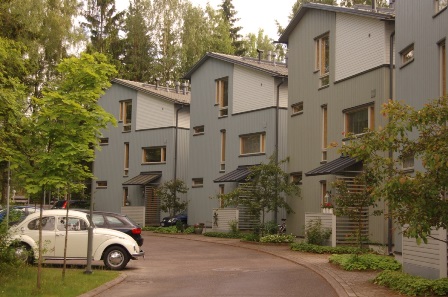An explorative study of municipal developer competitions in Helsinki
DOI:
https://doi.org/10.7577/formakademisk.823Keywords:
Architectural Quality, Developer Competition, European Competitions law, Professional agentsAbstract
This paper discusses the central features of so-called ‘site allocation competitions’, as organized by the City of Helsinki Real Estate Department (Kiinteistövirasto in Finnish). Site allocation competitions are developer competitions where the municipality sells or leases plots of land to developers or contractors, but where the ‘bidding’ is based on competing on the basis of architectural and urban quality factors. The focus in this paper is on the Finnish context, but as its legal framework is constituted by European competition law. In these competitions the proprietor expects the contractor or developer to create a design team and in turn the proprietor receives multiple proposals for a site without really paying for them. It seems important to examine this rather new type of architectural competition, as it is often an integral part of important large projects in terms of both financial investments and architectural design. It also constitutes a new tool in the practices of urban planning. The present study is explorative, based mainly on a close study and analysis of written material, such as reports, as well as three interviews with experienced organizers. The aim of the paper is to clarify the concept of developer competition, and discuss its possible benefits and problems. The core issue in the study is how architectural quality is produced within the legal framework, as well as to discuss the relation of the developer competition to the aims of urban planning and professional agents.

Downloads
Published
How to Cite
Issue
Section
License
Authors who publish with this journal agree to the following terms:
- Authors retain copyright and grant the journal right of first publication with the work simultaneously licensed under a Creative Commons Attribution 4.0 License that allows others to share the work with an acknowledgement of the work's authorship and initial publication in this journal.
- Authors are able to enter into separate, additional contractual arrangements for the non-exclusive distribution of the journal's published version of the work (e.g., post it to an institutional repository or publish it in a book), with an acknowledgement of its initial publication in this journal.
- Authors are permitted and encouraged to post their work online (e.g., in institutional repositories or on their website) prior to and during the submission process, as it can lead to productive exchanges, as well as earlier and greater citation of published work (See The Effect of Open Access).
- The author(s) must manage their economic reproduction rights to any third party.
- The journal makes no financial or other compensation for submissions, unless a separate agreement regarding this matter has been made with the author(s).
- The journal is obliged to archive the manuscript (including metadata) in its originally published digital form for at least a suitable amount of time in which the manuscript can be accessed via a long-term archive for digital material, such as in the Norwegian universities’ institutional archives within the framework of the NORA partnership.
The material will be published OpenAccess with a Creative Commons 4.0 License which allows anyone to read, share and adapt the content, even commercially under the licence terms:
This work needs to be appropriately attributed/credited, a link must be provided to the CC-BY 4.0 licence, and changes made need to be indicated in a reasonable manner, but not in any way that suggests that the licensor endorses you or your use.



